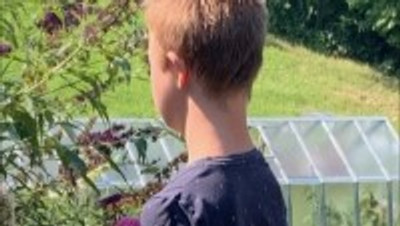The story of Marcel
Žaneta, Bratislava on 30.09.2020
This story has influenced our lives so much that despite so many
obstacles that accompany farming in Slovakia, a few years ago we
embarked on a project to grow and process double grain wheat in our
region.
Our son's name is Marcel, and since he switched from breast milk to a normal diet, his health problems started...
This condition lasted for years, from about Marcel's age of three to six, until a doctor gave him the Food Detective food intolerance test. He came out with a strong intolerance (dark blue coloring) to milk, eggs, wheat, citrus, and gluten. He also had a weaker intolerance (light blue coloration) to a few other foods. We focused on the worst ones, cut out dairy, citrus completely and switched to a 100% gluten free diet. After two weeks on the diet, his mucus production was cut about in half, then he got ho-hands, his immunity kicked in, fought back, and when these subsided, he remained virtually mucus-free. We were both happy and shocked to discover that the cause of his problems was actually diet.

Initially, eczema, and later added massive mucus formation in the respiratory tract. He had mucus and/or eczema continuously, without a break. He was breathing badly, mucus was bubbling in his airways. The worst were the nights when he had great difficulty breathing and had apnoeic pauses. We often had to suction his mucus 1-2 times during the night, propping him up with pillows, because when his head was higher, he was a little relieved.
We measured his blood oxygen saturation on his finger, he rarely got above 90 at night, not infrequently below 80. We had not only a humidifier at home, but also an oxygen machine. Often this chronic condition degenerated into acute bacterial infections with high temperatures.
The presence of pathogenic bacteria in nasal swabs was constant: moraxella, pneumococcus, streptococcus. We agreed on a radical solution, surgical removal of the nasal tonsil, but this was not possible because of the permanent presence of pathogens, inflammation and mucus.
We ended up in the hospital several times. I remember very vividly how he was once admitted to Kramari almost unconscious, with a CRP of over 200. After a few months, despite dieting, his health started to deteriorate again - the massive mucus in his airways and eczema returned. So we focused on organically grown food.
That's when someone recommended I try the primordial wheat varieties - single grain, kamut, and double grain (which are generally grown organically). Surprisingly, even though they contained gluten, his health started to improve until the problems completely disappeared, which has been ongoing ever since.
Today Marcel is 13 years old. He eats cereals almost exclusively in the form of two-grain foods and rice. Although he was born with Down syndrome, he does not suffer from reduced immunity, is rarely ill, less so than other children, tolerates physical stress well and, most surprisingly, is not prone to overweight and muscular hypotonia, as is common in children with Down syndrome.
This story has influenced our lives so much that despite so many obstacles that accompany farming in Slovakia, a few years ago we embarked on a project to grow and process double grain wheat in our region.
Today we grow double grain organically on dozens of hectares and process it into grain, flour and pasta in our own facilities. Thanks to Marcel, the Prazrnko project has become a reality.



